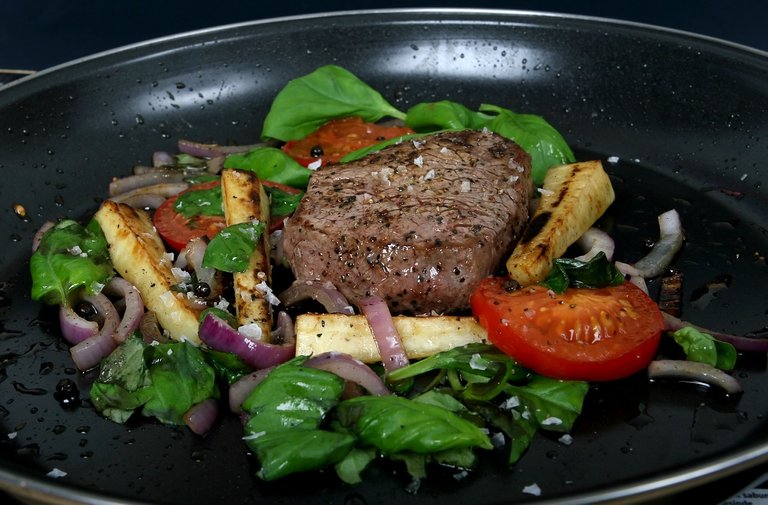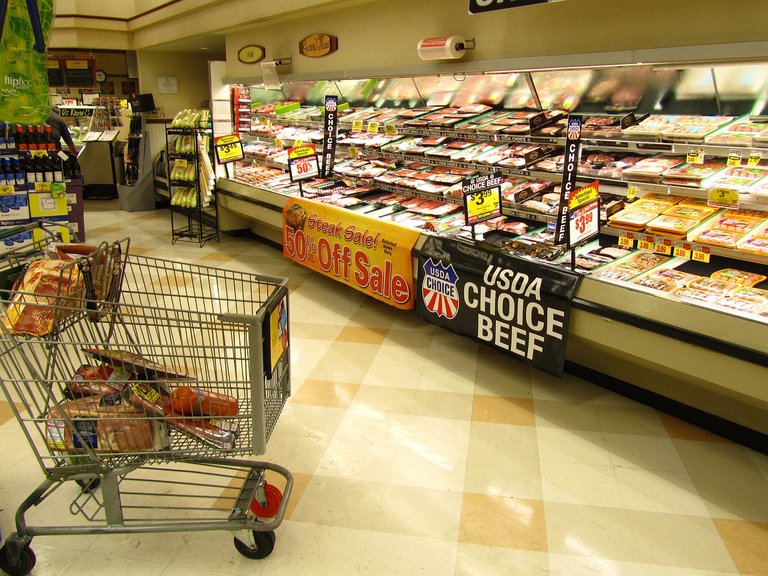
The growing demand for grass-fed meat today is expected to continue to fuel a shift in the market, by pressuring conventional meat producers to consider alternative methods. However, grass-fed beef still only represents less than 5 percent of the overall US beef market, though it's been growing at a yearly rate of about 25-30 percent over the past decade.
Thanks to the increase in demand, more farmers are now looking toward feeding their animals grass instead of GMO grains, because of the growing popularity for grass-fed meat products.
In 2016, it's estimated that sales of grass-fed beef surpassed $200 million.
Aside from grass-fed, demand for organic meat is also on the rise, and it's been suggested that rearing cattle on certified organic fodders might even be the more profitable practice to pursue than going with conventional methods. A previous look at this market by Future Market Insights had determined that the global organic beef market could grow to more than $8 billion.
Whether it's organic or grass-fed, it's clear that consumers are looking for what they perceive to be higher quality food products. Demand for grass-fed dairy and meat continues to rise not only in the United States.

Recent research from Ireland has suggested that milk from cows who have been fed a pasture-based diet (grass-fed), has been seen to have more fat content, more protein, and taste better, than conventional milk options.
Other studies have suggested that you might find more Omega-3s in grass-fed milk as well. It's not all positive though, as there are also critics and separate studies which haven't been as favorable, which have asserted that grass-fed is unsustainable, and that eating meat is still unhealthy regardless if it's grass-fed or organic etc. Still, millions of people though are choosing to opt for organic or grass-fed meat products instead of conventional ones and that's slowly inspiring a shift in the meat industry.
The growing demand for grass-fed has prompted one Texas rancher, B. Simmons, to open up his own grass-fed beef store, called Provision House. The meat products being sold there are raised on grasses that are pesticide and herbicide-free. That store joins a growing list of stores that are offering grass-fed and grass-finished meat products.
Another rancher from Texas, J. Taggart, is dedicated to teaching others about how to run a sustainable grass-fed beef operation.
Taggart has been teaching other ranchers, students, researchers, and others, on his short-duration, high-density grazing system that is said to benefit both the cattle and the soil.
"It's so simple, it's almost stupid,... We work in concert with Mother Nature." - says Taggart
He admits that when he cannot see the cattle anymore, because the grass is too tall, that he knows the pasture is healthy.
While there is an ongoing discussion over the sustainability of grass-fed meat because of the carbon footprint concerns that follow, ranchers invested in this space who have decades of experience have maintained that sustainable ranching begins with the soil.
Grass-fed grazing methods then, they argue, are far superior to the conventional feed-lot systems we've become accustomed to embracing. Several ranchers in this space have admitted that not only did they find it to be the more profitable option for them, and better for the animals, but that it also positively transformed the land that they had been working on for so many years.
Pics:
Pixabay

Thank you @doitvoluntarily for this awesome post and sharing the importance of supporting the grass-fed farms and I think we are doing better and better since like you said the demand for grass-fed foods is growing so fast since people really start to realize the importance of what we feed our bodies.
I actually only buy grassfed or organic. The GMO's scared the bejesus out of me when I really read up on them years ago.
Thank you for sharing this info!
We've been raising strictly 100% grassfed beef since 2008. It's absolutely amazing how the careful management of grazing has improved not only our farm, but the 2 pieces we lease. Not to mention all the health benefits that you mentioned, which is our primary reason for doing it.
great to hear:) thank you for sharing about your experiences
I recently found a farmer in my vicinity that raises his cattle on meadows, grass fed and grass finished. Not only does this meat taste a lot better and is more nutritious, it also is not that much more expensive. The price difference of about 20% gets set off by the fact that these steaks don't contain as much water as industrially raised beef and therefore do not shrink visibly in the pan. All in all a much better deal :-)
We are working on a consumer direct organic / grass fed operation. We have barely begun. Eventually we will grow our own grains so we can offer grass finished or organic grain finished
https://steemit.com/ranchlife/@andre-ager/meanwhile-back-at-the-ranch-we-bought-the-ranch
that's awesome!